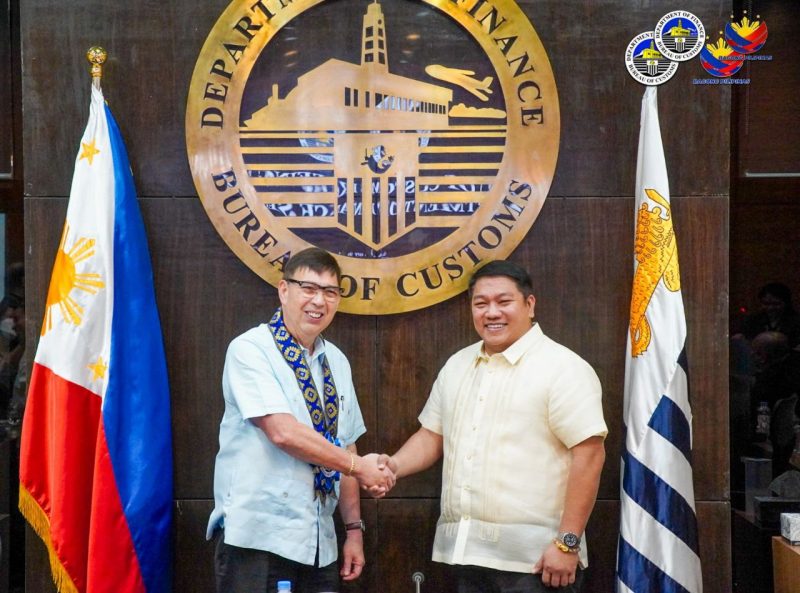-
The Bureau of Customs has drafted an order for the clearance process for cross-border e-commerce goods
-
Stakeholders have until February 1 to comment on the draft; an online public consultation is also set for February 1
-
The proposed Customs Administrative Order mandates accreditation for all involved parties, including e-commerce operators and freight forwarders
-
The order seeks to ensure compliance and streamlining of the processing, clearance and release of e-commerce imports
-
It mandates advanced electronic data exchange among relevant parties in the e-commerce supply chain
-
Specifically, it requires advance electronic submission of the cargo manifest per existing customs rules
-
The draft CAO calls for simplified clearance formalities using pre-arrival processing and risk assessment for cross-border e-commerce goods, with procedures for the immediate release of low-risk shipments
The Bureau of Customs (BOC) has drafted an order for clearing cross-border e-commerce goods purchased through online shopping platforms.
Stakeholders have until February 1 to submit their comments on the draft Customs Administrative Order (CAO), the BOC said in an announcement dated January 25.
An online public consultation is also set for February 1.
Theresita Eisma, the national consultant for the e-commerce program under the ARISE Plus Philippines Project, said the draft CAO on cross-border control of e-commerce imports is designed to introduce a fresh set of customs regulations tailored to meet the specific demands of the burgeoning Philippine cross-border e-commerce market.
READ: BOC drafting CMO to plug cross-border e-commerce gaps
The ARISE Plus Philippines Project, funded by the European Union, and executed by the International Trade Centre and the Department of Trade and Industry, aims to enhance BOC’s readiness for compliance with international trade facilitation commitments.
The draft CAO covers the processing, clearance, and release of imported goods facilitated through online trading platforms (e-commerce).
Excluded from the draft are express shipments covered under CAO No. 05-2020.
READ: PH rolls out customs procedures for air express shipments
The proposed CAO is aligned with the World Customs Organization (WCO) Framework of Standards on Cross-Border e-commerce, WCO Immediate Release Guidelines, and Article 7.8 of the World Trade Organization Agreement on Trade Facilitation, according to the BOC.
Under the proposed CAO, accreditation with the BOC for e-commerce transactions is mandatory for all stakeholders, including e-commerce operators, digital platform providers, value-added service providers (VASP), freight forwarders, and customs brokers.
The accredited stakeholders are required to post a performance bond to ensure strict compliance with their duties and obligations.
Accredited freight forwarders must maintain prepayment accounts in authorized agent banks, guaranteeing immediate payment of required duties and taxes on e-commerce goods.
BOC will establish an e-commerce operating system for exclusive processing, lodgment, clearance, and monitoring of e-commerce goods (Category 1 and 2). Pending its establishment, third-party solutions providers may be enlisted.
The draft CAO mandates advanced electronic data exchange among relevant parties in the e-commerce supply chain, emphasizing data security, privacy, protection, and ownership. Specifically, it requires the advance electronic submission of the cargo manifest as per existing customs rules.
BOC plans to implement a dynamic risk management structure using advanced technologies specific to e-commerce to identify risky goods and shipments.
The draft CAO calls for simplified clearance formalities using pre-arrival processing and risk assessment for cross-border e-commerce goods, with procedures for the immediate release of low-risk shipments.
Notably, the draft CAO will not impede BOC’s authority to examine, detain, seize, confiscate, or refuse entry of goods, nor does it prevent post-clearance audits. Certain importations, such as those declared as “without commercial value” or for specific regulatory conditions, will not be subject to e-commerce processing.
BOC will later on issue a customs memorandum order outlining procedures for the release of e-commerce goods and may impose import processing charges in accordance with existing rules and regulations. – Roumina Pablo









